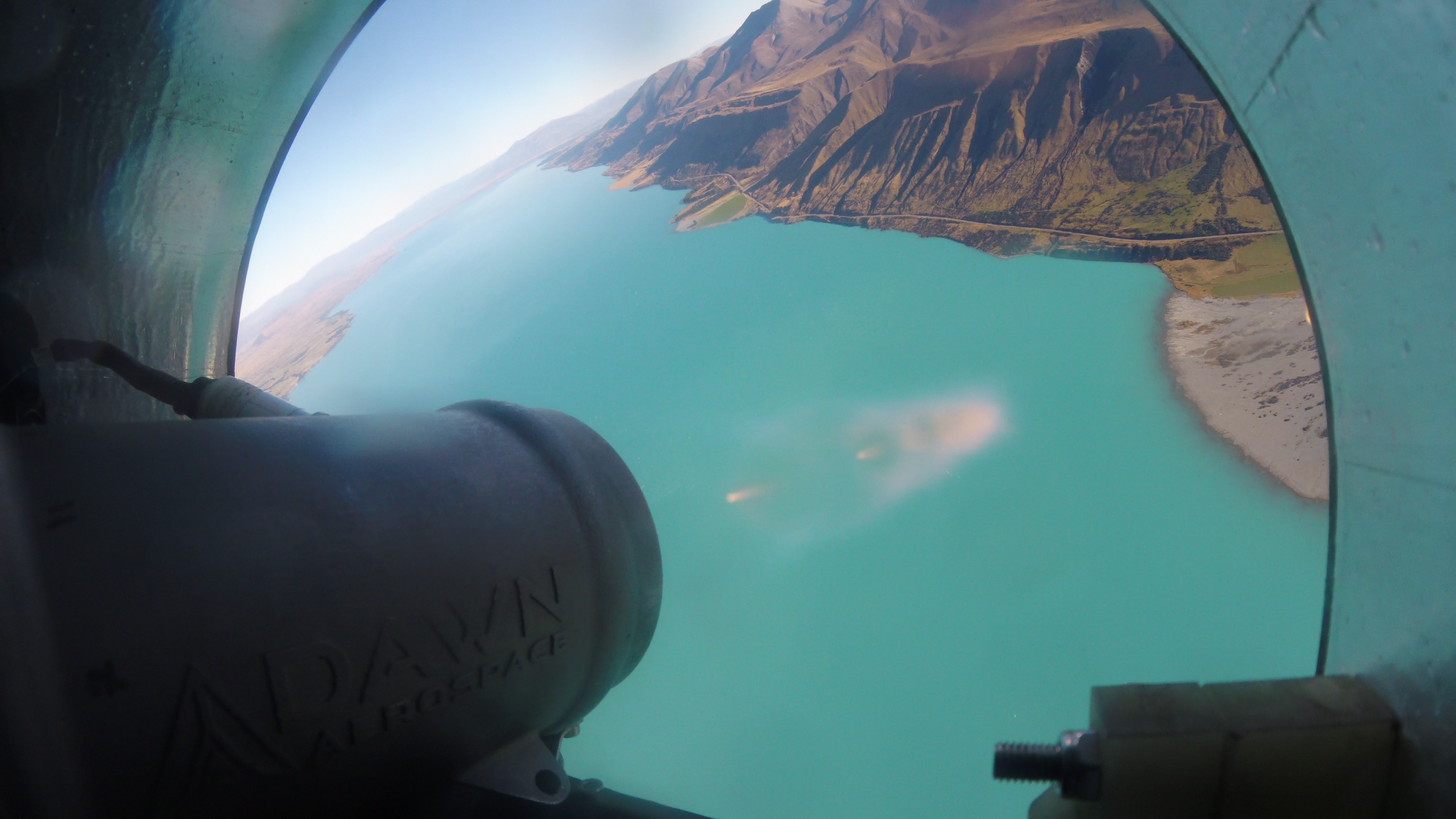Dawn Aerospace's space plane aces first rocket-powered flights (video)
The Mk-II Aurora aims to become the first plane to fly to space twice a day.
Dawn Aerospace's robotic space plane flew with a rocket engine for the first time last month, taking a major step toward the company's goal of building a fully and rapidly reusable craft.
Last week, the 15.7-foot-long (4.8 meters) Mk-II Aurora flew three times, and "all test objectives were achieved," Dawn representatives said in a statement issued on Wednesday (April 5). The company also released a one-minute video showing the sleek space plane flying over New Zealand's stunning South Island, close to the Glentanner Aerodrome where the tests were carried out.
In August 2021, the Mk-II Aurora debuted with five test flights using surrogate jet engines, but the plan was always to pivot to a rocket-powered engine. In the latest series of tests, which took place once each day from Wednesday (March 29) to Friday (March 31), the Mk-II Aurora flew to a height of 6,000 feet (1,830 m) at speeds of 196 mph (315 kph), which is similar to those the space plane had achieved during its 2021 test flights, Dawn team said in Wednesday's update.
Related: Space planes: evolution of the winged spaceship (infographic)
"This is a phenomenal achievement for our small, but extremely capable, team in New Zealand and the Netherlands," Stefan Powell, the CEO of Dawn Aerospace, said Wednesday in a different statement. "To my knowledge, Dawn now operates the most rapidly reusable rocket-powered aircraft in the world."
The latest test flights aimed mainly to validate the plane's rocket engine. So the height reached by the plane was not a key factor, and future flights are expected to increase both speed and altitude.
The Dawn team envisions its Mk-II Aurora, which can carry a small payload of 2.2 pounds (5 kilograms), not only to be able to fly more than 62 miles (100 kilometers) high, but to do so twice per day when it carries out commercial operations, such as sending satellites into space. When that manifests, Mk-II Aurora will become the first fully reusable satellite launcher.
Breaking space news, the latest updates on rocket launches, skywatching events and more!
Back in December 2020, Dawn Aerospace was approved to fly the Mk-II Aurora out of a conventional airport alongside civil airplanes. This approval, granted by the New Zealand Civil Aviation Authority, the agency responsible for the country's aviation safety and security, was another major win for the company.
Airports usually wait until launched rockets exit Earth's atmosphere and sometimes even reroute commercial flights because rockets can leave debris in their wake that can impact passenger planes. Dawn's team says the Mk-II Aurora stands out in this regard because it is designed to take off and land on a runway, just like an airplane. The space plane thus would not need any special restrictions or dedicated runways.
All of these milestones, including the success of the latest test flights, advance Dawn's goal to produce reusable space planes in a scalable and sustainable way, as the company looks toward achieving 100 to 1,000 flights per plane.
"Sustainability is important to us," Powell said in his statement on Wednesday. "Beyond being the responsible thing to do, there is no point in building something if we aren't going to be able to use it."
As of late 2022, Dawn had raised $13 million to build a successor to Mk-II Aurora that would be able to carry a 550-pound (250 kg) payload to orbit.
Follow Sharmila Kuthunur on Twitter @Sharmilakg. Follow us @Spacedotcom, or on Facebook and Instagram.

Sharmila Kuthunur is an independent space journalist based in Bengaluru, India. Her work has also appeared in Scientific American, Science, Astronomy and Live Science, among other publications. She holds a master's degree in journalism from Northeastern University in Boston.


